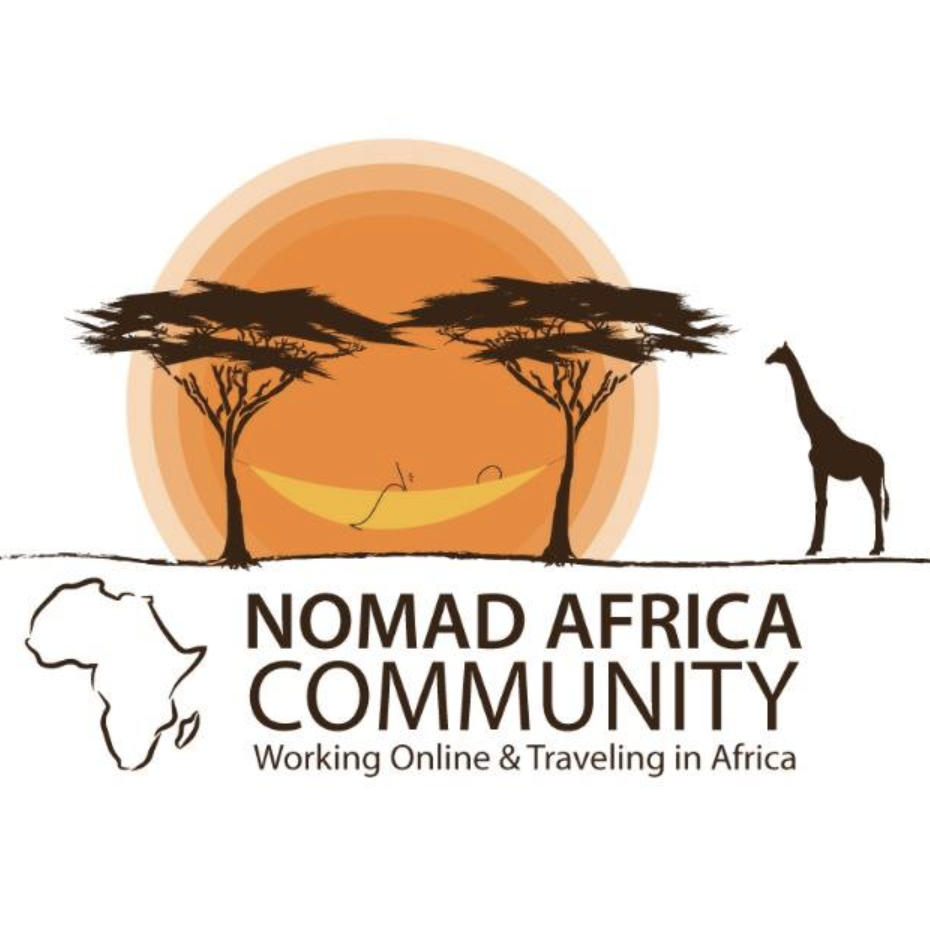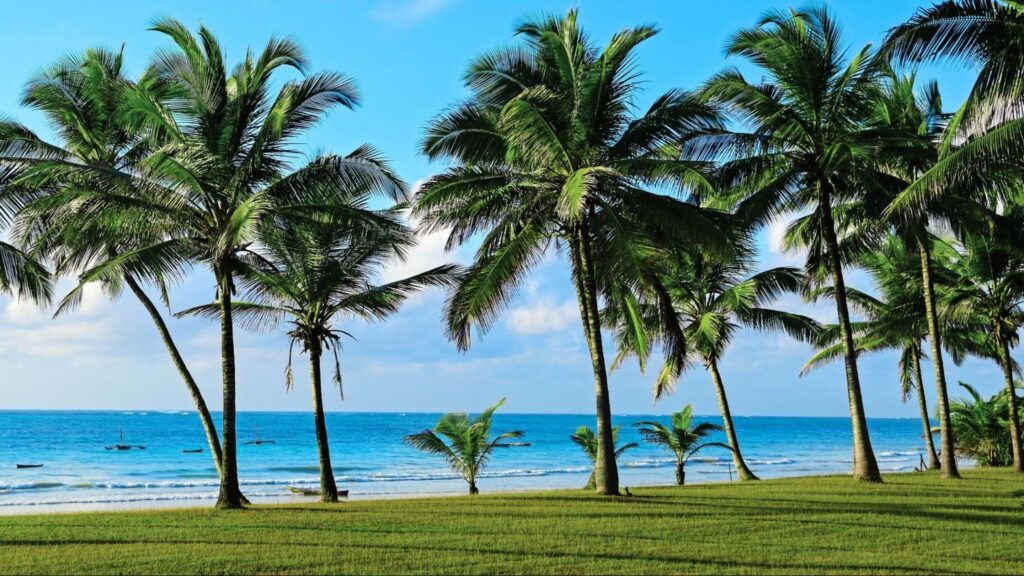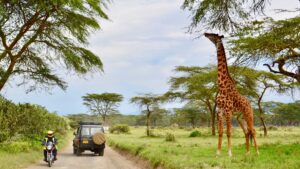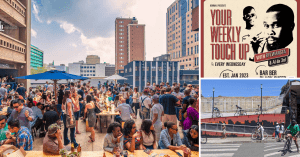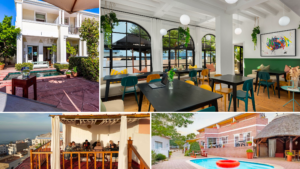Ghana has become an emerging destination for digital nomads seeking a unique experience in a culturally rich African country. With warm weather, friendly people, and relatively good internet connectivity, the West African nation offers several attractive aspects for remote workers seeking a new adventure.
The digital nomad community in Ghana is growing, and by exploring the country, one can find various accommodations and co-working spaces that cater to their needs. Locations like the vibrant capital city of Accra provide access to modern conveniences, beautiful beaches, and serene parks, making it an ideal base for working and living.
The cost of living in Ghana may not be as low as one might expect for a developing nation. However, the country’s lively atmosphere, unique attractions, and the opportunity to explore the African continent make it a compelling destination for digital nomads seeking newer experiences.
Jump To:
Things to Do in Ghana | Destinations | Internet | Coworking Spaces | Coliving Spaces | Best Times to Visit | Visas | Cost of Living
| Main Languages | English |
| Capital city | Accra |
| Main airport | Kotoka International Airport (Accra) |
| Currency | Ghanaian Cedi (GHS) |
| Time Zone | Greenwich Mean Time (GMT) |
| Plug Socket Type | Type D and G |
| Best time(s) to Visit | October to April |
| Internet Quality | Good |
| Highlights | Rich Culture; Wildlife Safaris; Stunning Coastline |
Things to Do in Ghana
Ghana is a vibrant and diverse country that offers a wide range of activities and experiences for digital nomads. With its stunning landscapes, interesting local culture, rich history, and unique traditions, there is no shortage of things to see and do.
One of the main attractions in Ghana is its historic sites. The country has a rich history that is deeply intertwined with the history of the African continent. Visiting forts and castles, such as Cape Coast Castle and Elmina Castle, offer a glimpse into the past and the important role Ghana played in the transatlantic slave trade. Another notable historic site is the Asante Traditional Buildings, which showcase the prowess of the Asante Empire and its architectural achievements.
Nature lovers will find plenty to enjoy in Ghana. Set on the coastline, you can spend time at the numerous beautiful beaches that Ghana has to offer. For those who prefer the great outdoors, a visit to Mole National Park, the largest wildlife refuge in the country, provides an opportunity to get up close and personal with various animal species. Kakum National Park, with its canopy walkway, offers a unique perspective of the lush rainforest.
Digital nomads who are interested in local culture and traditions should consider visiting Bolgatanga, known as the crafts center of Upper East Region. This town holds a huge central market where visitors can browse stalls and immerse themselves in the vibrant atmosphere. Take the opportunity to purchase handmade crafts, textiles, or pottery as unique souvenirs.
Accra, the capital city, also boasts a growing community of freelancers, digital nomads, and young entrepreneurs. Accompanying this vibrant scene are cafes with fast Wi-Fi and other amenities, making it a perfect spot for the digital nomad to mix work and leisure.
In summary, Ghana provides a multitude of activities and attractions for digital nomads to explore and enjoy. No matter what your interests are, you are sure to find something to suit your preferences in this dynamic African nation.
Best Destinations for Digital Nomads
Ghana is becoming an increasingly attractive destination for digital nomads who value its rich culture, friendly people, and beautiful landscapes. Some of the top destinations for digital nomads in Ghana are Accra, Osu, and Kumasi. These cities offer a mix of low-cost living, diverse populations, and vibrant lifestyles that appeal to remote workers from around the world.
Accra, the capital city, sits on the coast of the Atlantic Ocean, providing digital nomads with beautiful beaches to enjoy. The weather in Accra is often pleasant, allowing for outdoor activities like surfing and beach volleyball. The city has a thriving nightlife, making it a great place for digital nomads looking to socialize and explore local culture. There are also several cafes and public places with reliable Wi-Fi, making it easy for remote workers to stay connected and productive.
Osu, a suburb of Accra, is popular among expats and digital nomads due to its well-connected location and bustling atmosphere. The area is known for its diverse food scene, offering cuisines from around the world, as well as its lively social scene with numerous bars and clubs. Many digital nomads choose to settle in Osu because of its friendly atmosphere and easy access to amenities.
Kumasi, the second-largest city in Ghana, is another excellent option for digital nomads looking to immerse themselves in local culture. The city has a lower cost of living compared to Accra, making it accessible to remote workers on a tighter budget. Kumasi is also home to a diverse population, with people from different ethnic and cultural backgrounds living together in harmony. As a result, digital nomads can expect to find a welcoming community with a variety of experiences to enjoy.
In summary, Ghana offers digital nomads an array of options for living and working, from the bustling city life in Accra and Osu to the cultural melting pot in Kumasi. With its low cost of living, friendly locals, and diverse atmospheres, Ghana is an ideal destination for digital nomads seeking an enriching experience abroad.
Internet Connectivity
In Ghana, digital nomads can generally expect reliable internet connectivity in larger cities and popular tourist areas. The country has invested in its telecommunications infrastructure in recent years, making it more accessible for those who rely on the internet for work and leisure.
Several internet service providers (ISPs) operate in Ghana, offering competitive rates for both mobile and fixed broadband connections. On average, mobile download speeds reach 13.07 Mbps, while upload speeds are around 9.02 Mbps. For fixed broadband, the situation is even more favorable with download speeds averaging at 50.85 Mbps and upload speeds of around 39.34 Mbps.
In urban areas, such as the capital city of Accra, digital nomads can find a range of options for working remotely. From cafes and co-working spaces with high-speed internet to serviced apartments with stable connections, there should be little problem finding a comfortable environment to work in. However, in more rural areas, internet connectivity can be less reliable and harder to come by, so it’s essential for digital nomads to plan accordingly.
One option to maintain consistent connectivity throughout the country is using a mobile hotspot or purchasing a local SIM card with a generous data plan. This can provide flexibility for digital nomads while enabling them to work from various locations without relying solely on fixed broadband options.
It is essential for digital nomads in Ghana to be mindful of potential interruptions in service due to power outages or network maintenance. Implementing a backup plan, such as having an external battery pack or secondary SIM card, is a good idea for those living and working in the country.
In conclusion, internet connectivity in Ghana is generally reliable in larger cities and tourist areas, while rural regions may pose challenges. Digital nomads can expect a mix of fixed broadband and mobile options, allowing them to work efficiently from a range of locations across the country.
Coworking Spaces
Ghana offers a growing number of coworking spaces for digital nomads, particularly in its capital city, Accra. These spaces provide a conducive environment for individuals looking to work remotely, offering amenities such as fast internet, comfortable seating, and networking opportunities.
One of the top coworking spaces in Accra is Kukun. Located in a bustling part of the city, it is an ideal spot for remote workers seeking a pleasant atmosphere. However, Kukun is on the pricier side, making it an expensive choice for some digital nomads.
Another coworking space in Accra worth considering is iSpace. This space is known for its flexible plans and modern facilities, catering to the needs of digital nomads and local entrepreneurs alike.
Besides Accra, Ghana’s second-largest city, Kumasi, also offers options for digital nomads. Although it may not have as many coworking venues as Accra, the city provides a more laid-back atmosphere and lower living costs.
In conclusion, both Accra and Kumasi offer coworking spaces for digital nomads seeking work-friendly environments in Ghana. While Accra has a larger number of options, Kumasi may provide a more affordable and relaxed experience for remote workers spending time in this West African country.
Coliving Spaces
Ghana is an increasingly popular destination for digital nomads seeking unique cultural experiences, friendly locals, and a stable internet connection. Coliving spaces, which combine accommodation and coworking areas, have started to emerge in the country to cater to this growing community.
In Accra, the capital city of Ghana, digital nomads can find coliving spaces that combine comfortable living quarters with dedicated coworking areas. One such example is Apartment The Spice House, which offers Wi-Fi-connected stays for digital nomads looking to work and live in the heart of the city source. These spaces offer a sense of community and networking opportunities for like-minded individuals.
Kumasi, the second-largest city in Ghana, is also becoming a hub for digital nomads. The city offers a vibrant atmosphere with a mix of modern amenities and rich historical sites. Although coliving spaces are yet to gain prominence in Kumasi, digital nomads can still find accommodation options with coworking amenities like Wi-Fi and comfortable workstations.
While exploring coliving options in Ghana, it’s important to consider factors such as internet speed, accessibility to local amenities, and proximity to transportation networks. This ensures a productive stay and an opportunity to truly immerse oneself in the local culture.
In summary, Ghana offers budding opportunities for digital nomads seeking coliving spaces. With more options expected to emerge in the future, both Accra and Kumasi are prime cities to consider for a unique and memorable experience in West Africa.
Best Times to Visit
Ghana is known for its balmy all-year-round temperatures due to its proximity to the equator, making it a desirable destination for digital nomads looking for warmth and cultural experiences. The ideal time to visit Ghana is during the northern hemisphere winter (October to April). During these months, temperatures are high; however, humidity and precipitation are at their lowest, creating a pleasant climate for exploring the country and working remotely source.
Worst Times to Visit
On the flip side, the least favorable time to visit Ghana is during its wet season, typically occurring from May to September. During this period, rain is more frequent and the weather can become hot and sticky, making it less enjoyable for outdoor activities and remote work source. This season could cause potential difficulties for digital nomads who value comfortable weather conditions for their lifestyle.
Although Ghana has largely paved roads that make it one of the easiest West African countries to travel in during the wet season, increased rainfall may still impact travel plans and the overall experience for digital nomads in the country.
In summary, for a digital nomad planning a trip to Ghana, the best time to visit is from October to April when the weather conditions are optimal. Keep in mind the wet season from May to September is less desirable due to increased temperatures, humidity, and rainfall.
Tourist and Digital Nomad Visas
Ghana is a vibrant and culturally diverse country, making it an attractive destination for digital nomads. However, it is essential to understand the visa and residency requirements to legally stay and work in the country.
For short-term stays, travelers may obtain a tourist visa. The tourist visa grants visitors the right to stay in Ghana for a limited period, typically up to 60 days. It is important to note that the tourist visa does not grant permission to work in the country, so digital nomads should primarily use it for leisure purposes rather than remote work.
In contrast to many other countries, Ghana does not offer a specific digital nomad visa. To legally work in the country, you will need to secure a residence permit and a work permit. The application process for these permits can be lengthy, but they grant digital nomads permission to work remotely within Ghana.
To apply for a residence and work permit, digital nomads must possess a valid passport and provide proof of their source of income. Some residency programs may also require a police clearance certificate from your home country and a health report. It is essential to research the specific requirements for your country of origin to ensure that the application process goes smoothly.
While Ghana does not have a formal digital nomad visa, the country’s Residency Requirements grant digital nomads permission to stay and work remotely in the country. This makes it an interesting destination for remote workers craving new experiences and a different cultural environment.
Overall, it is crucial to thoroughly research Ghana’s visa and residency requirements before planning to live and work in the country as a digital nomad. This will ensure that you have the correct permits and avoid any legal issues during your stay.
Cost of Living
Ghana offers a unique experience for digital nomads as it provides a mix of culture and modern amenities at a relatively low cost. The cost of living in Ghana varies depending on the city, with the capital city, Accra, being more expensive than other locations such as Kumasi.
In Accra, digital nomads can expect to spend up to $3057 per month on living expenses, while in Kumasi, the cost is nearly half at $1689 per month. The difference in cost is typically due to variations in housing, food, transportation, and other day-to-day expenses.
Housing is an important factor for digital nomads seeking a comfortable and affordable stay. The cost of accommodation in Ghana varies based on the type of residence and location. In general, a budget hotel room costs around $20 per day, while a more upscale option can cost around $38 for a couple. Shared living spaces, such as Airbnb or local guesthouses, can offer more affordable alternatives.
Food in Ghana is quite diverse and affordable. From local delicacies to international cuisines, expats and digital nomads can enjoy meals at various price points. Street food and local markets provide low-cost options that allow digital nomads to delve into the local culinary scene while saving money. On the other hand, more upscale restaurants offer a variety of international options at a slightly higher price.
Transportation in Ghana is relatively affordable, with various modes of transportation available to suit different budgets. Public transportation options, such as buses and shared taxis, are the most economical choices for getting around. If digital nomads prefer more comfort and convenience, private taxis and ride-sharing apps like Uber are available at a higher cost.
It’s important to note that while the cost of living in Ghana is generally lower than in many developed countries, additional expenses such as internet connection and coworking spaces should be considered. Reliable internet can sometimes be expensive or challenging to find, but it’s essential for remote work. Coworking spaces are becoming more common in cities like Accra and Kumasi and provide digital nomads with a conducive work environment and network of like-minded individuals.
In summary, the cost of living in Ghana is relatively affordable, with options to suit various budgets and lifestyles. With careful planning and research, digital nomads can enjoy a unique experience in this vibrant African country while maintaining a comfortable lifestyle.
